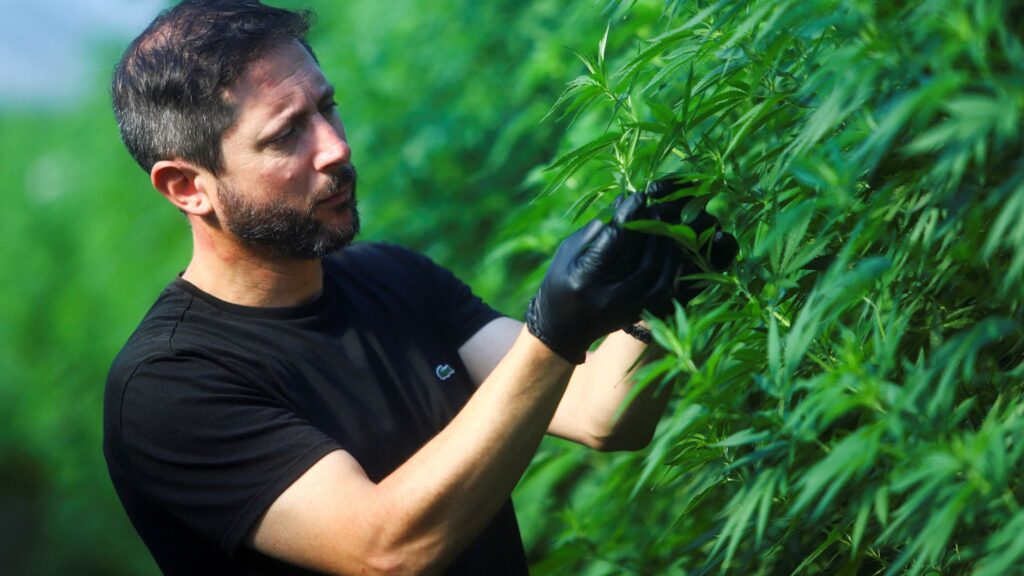Argentina’s government says it is hoping to achieve $500m (£422m) in domestic cannabis sales and $50m in exports by 2025.
Recreational use is still banned but people can grow their own plants for medicinal use and authorities now want to allow more private firms to produce the drug.
“The industry has incredible potential,” said Gabriel Gimenez, director of the newly created cannabis watchdog.
He said 51 regulated research and development projects were currently taking place around the country and the National Seed Institute has given the green light to 13 traceable types of seed.
Argentina is hoping to generate foreign currency through exports and generate 10,000 new jobs.
The country currently allows cannabis-derived products in pharmacies and has ordered insurers to cover prescriptions for marijuana-based medications.
Pampa Hemp was the first private venture authorised by Argentina’s health ministry.
It started cultivation in 2021 of pharmaceutical-grade cannabis at an experimental station in Buenos Aires province.
Pablo Fazio, president of the Argentine Chamber of Cannabis (ARGENCANN) and Pampa Hemp’s co-founder, said demand could ignite a new domestic industry for products made from the raw material.
“That in itself is a revolution,” he said.
The medical cannabis research and development centre (CIDCam), in Santa Fe province, has more than 200 cannabis plants of various varieties and a second harvest is due this month.
It aims to help producers experiment with different types of the drug.
Argentina’s neighbour Uruguay legalised the growth, sale and smoking of cannabis in 2013, the first modern country to do so, while Paraguay is also seeking to legalise cultivation for medical use.
Countries in Latin America have been gradually loosening restrictions around the cultivation, distribution, and consumption of cannabis.
In the UK, cannabis was legalised five years ago for certain medical condition such as severe forms of epilepsy.
However, new research suggests there has been an increase in the number of people using it illegally to try to treat their health conditions.
H/T: news.sky.com



